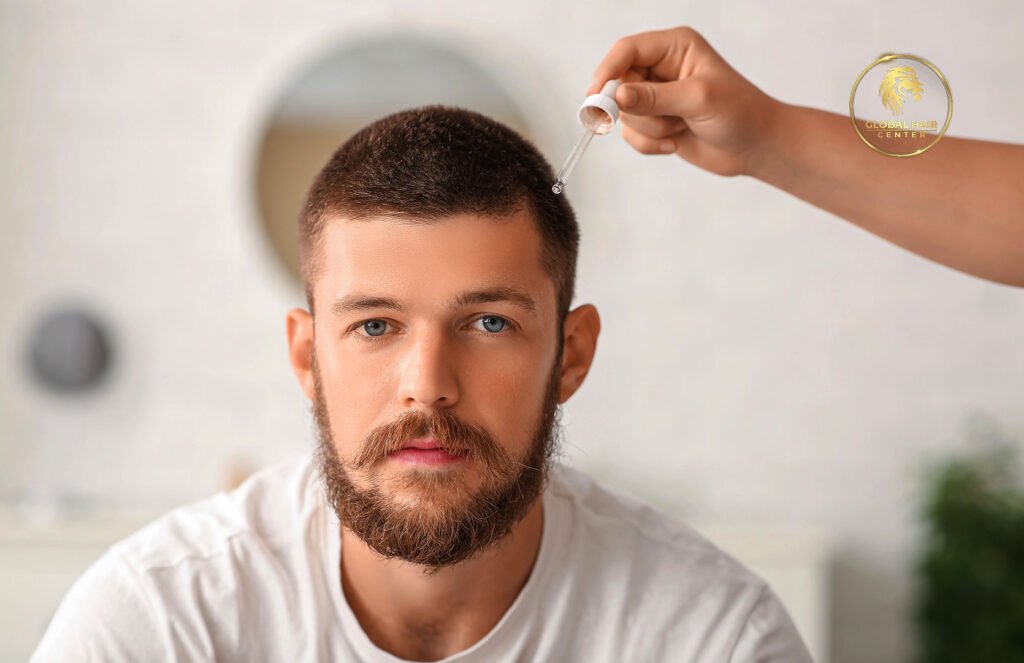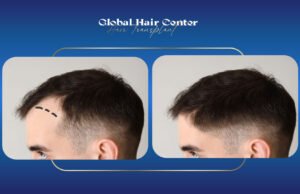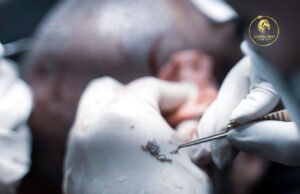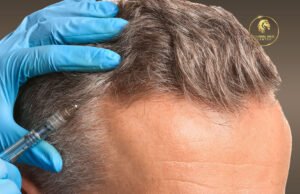Scalp Care After a Hair Transplant in Dubai

Essential Scalp Care After a Hair Transplant in Dubai for Optimal Results
A hair transplant surgery might help you regain your confidence and get the look you want. However, the journey continues beyond the procedure itself. Proper scalp care after a hair transplant in Dubai is essential for achieving the best outcomes and long-term success with your hair transplant.
This article will walk you through key post-transplant care practices, lifestyle changes, and tactics for managing expectations while recovering. Whether you want to maintain a healthy scalp, follow behaviors that encourage long-term hair growth, or navigate the emotional side of your journey, these tips will help you get the most out of your procedure.
Scalp Care After a Hair Transplant in Dubai
After your hair transplant procedure in Dubai, maintaining scalp health is crucial for optimal results. The doctor might give you some instructions to help you with the scalp care, such as:
- Gentle Shampooing and Conditioning: Use a mild, sulfate-free shampoo and conditioner recommended by your doctor to keep the scalp clean and promote healthy hair growth. Avoid harsh products that could irritate the scalp or affect the transplanted hair.
- Scalp Massage and Stimulants: Gentle scalp massage can improve blood circulation and promote hair follicle health. Some individuals may use scalp stimulants or essential oils under the guidance of their doctor to enhance hair growth and thickness.
- Avoiding Excessive Heat and Chemicals: Limit the use of hot styling tools, such as hair dryers and straighteners, which can damage fragile hair follicles. Similarly, avoid chemical treatments like perms or dyes that could potentially harm newly transplanted hair.
Managing Expectations
Understanding realistic timelines and outcomes is essential during the recovery phase. Here is what to expect during the recovery phase:
- Hair Growth Cycles: Hair growth follows a natural cycle of shedding and regrowth. It’s normal for transplanted hair to shed within the first few weeks post-procedure before entering a phase of new growth. Remain patient as you wait for fuller, thicker hair to emerge.
- Varied Growth Rates: Hair growth rates vary among individuals, influenced by factors such as age, genetics, and overall health. While some may see rapid growth, others may experience slower progress. Your doctor can provide personalized insights based on your unique circumstances.
- Consultation for Additional Treatments: If desired results aren’t fully achieved after the initial recovery period, consult with your doctor about potential supplementary treatments, such as additional hair transplants or hair growth medications like plasma and stem cell therapy, to enhance density and coverage.
Lifestyle Adjustments
Adopting healthy habits can support long-term hair health and maintenance. Here are some tips that can help you maintain a healthy lifestyle:
- Balanced Diet and Hydration: A nutritious diet rich in vitamins, minerals, and proteins supports overall hair health. Stay hydrated and incorporate foods like leafy greens, nuts, and lean proteins to promote strong, vibrant hair growth.
- Stress Management: Chronic stress can contribute to hair loss and affect the overall health of your hair. Practice stress-reducing techniques such as yoga, meditation, or regular exercise to support hair follicle health and growth.
- Smoking and Hair Health: Smoking can adversely affect hair follicle function and impede the success of hair transplant procedures. If you smoke, consider quitting or reducing tobacco use to optimize the longevity and quality of your transplanted hair.
Psychological Impact and Support
Addressing emotional aspects and adjusting to your new appearance are crucial parts of the recovery process. Here are a few things that you can do to help with boosting your confidence:
- Emotional Adjustment: Hair loss and restoration can significantly impact self-esteem and confidence. Seek support from loved ones or consider joining support groups where you can share experiences and receive encouragement throughout your journey.
- Celebrating Milestones: Acknowledge and celebrate milestones in your hair transplant journey, such as noticing new growth or achieving desired density. Recognizing progress can boost morale and reinforce the positive changes resulting from your procedure.
- Counseling and Psychological Support: If you experience emotional challenges related to hair loss or the recovery process, consider consulting with a counselor or therapist who specializes in body image and self-esteem. Professional support can aid in navigating emotional transitions and fostering resilience.
Long-Term Follow-Up and Maintenance
Regular monitoring and maintenance are essential for preserving the results of your hair transplant. Here is what you can do to preserve the results you gain in the long run:
- Follow-Up Visits: Continue scheduling periodic follow-up visits with your doctor to assess long-term progress, monitor hair growth, and address any concerns or questions you may have about maintenance or additional treatments.
- Hair Loss Prevention Strategies: Implement strategies recommended by your doctor to prevent further hair loss, such as using FDA-approved medications like minoxidil or finasteride. These treatments can complement your hair transplant results and help maintain overall hair density.
- Revision or Touch-Up Procedures: Depending on individual response and desired outcomes, some individuals may opt for revision or touch-up procedures to refine hairline design, increase density, or address areas of continued thinning. Discuss options with your doctor to determine the best approach for your needs.
Enhancing Recovery with Professional Guidance
Working with a trained and experienced hair transplant doctor can significantly improve your healing process. Your doctor should be the trusted source for tailored information, so make sure that you follow their lead, use the correct post-procedure care, and avoid any problems. Regular contact and check-ups with your doctor allow for modifications to your care plan as needed, ensuring that your scalp and hair receive the best possible support for growth.
Conclusion
A successful hair transplant requires not only treatment but also follow-up, work, and scalp care after a hair transplant in Dubai. Following scalp care instructions, living a healthy lifestyle, and getting expert advice will help you get the greatest outcomes from your hair transplant in Dubai. Your commitment to proper care will pay off, helping you enjoy long-lasting confidence and satisfaction with your transformation.
Take the first step toward achieving lasting results and a confident new you. Let us guide you through personalized scalp care and long-term maintenance to ensure your hair transplant success. Contact Global Hair Dubai now to book your appointment!

How Long Do Hair Transplants Last?
How Long Do Hair Transplants Last? Hair loss is a common issue affecting millions worldwide, leading many to seek.
Read More
Revitalize Your Look: Insider Tips and.
Revitalize Your Look: Insider Tips and Insights on Hair Transplantation in Dubai Dubai, a city known for its luxury and.
Read More

